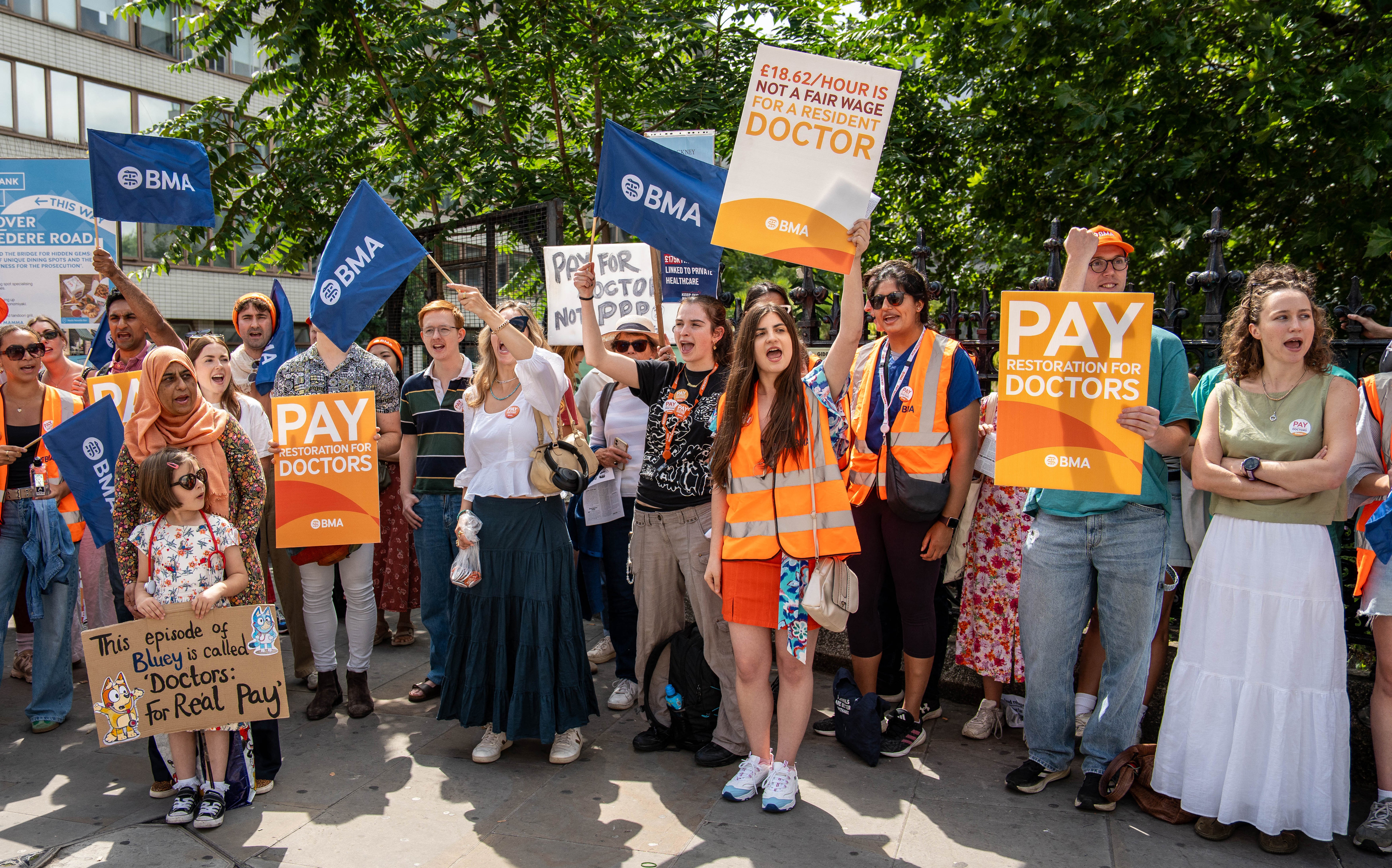Rachel Reeves has been given her strongest warning yet that she will have to break a key party manifesto pledge by hiking taxes, introduce charges to use the NHS, or drop the triple lock guarantee on the state pension.
The beleaguered chancellor raised taxes by £40bn in her first Budget last year, partly to fund record new investment in the NHS.
But now the world’s most important financial watchdog has warned that she is likely to have to break an election promise not to raise “taxes on working people” – income tax, VAT, or national insurance contributions made by employees – in order to balance the books.
It comes as the business secretary, Jonathan Reynolds, described demands from senior figures in Labour for the introduction of wealth taxes to close the financial gap as “daft”.

In a report on the UK economy, titled “Article IV Consultation with United Kingdom”, the International Monetary Fund (IMF) warned: “Unless the authorities revisit their commitment not to increase taxes on ‘working people’, further spending prioritisation will be required to align better the scope of public services with available resources.”
It went on: “The triple lock [a guarantee that applies to the state pension] could be replaced with a policy of indexing the state pension to the cost of living. Access to public services could also depend more on an individual’s capacity to pay, with charges levied on higher-income users, such as co-payments for health services, while shielding the vulnerable.
“There may also be scope to expand means testing of benefits.”
The challenges Ms Reeves is facing, the IMF said, include the impact of Donald Trump’s continuing tariff war, as well as the presence of “little fiscal headroom” in the UK finances.

The warning could not come at a worse time for the chancellor, who is already facing heavy speculation that she could lose her job in a reshuffle as the economy continues to stagnate.
A tussle rumbles on within the government over a push to introduce wealth taxes, which Ms Reeves has been unable to rule out. At the forefront of demands for a wealth tax is deputy prime minister Angela Rayner, who sent the chancellor a memo containing eight suggestions, including reinstating the pensions lifetime allowance and changing dividend taxes, ahead of the spring spending review.
And it is feared that Ms Reeves will again freeze income tax thresholds, dragging millions more people into paying income tax, and more into the higher 40p and 45p bands.
Speaking on a podcast for GB News, Mr Reynolds, the business secretary, broke cover to reveal his opposition to a wealth tax after hearing warnings from the City.
He said: “There’s no kind of magic [tax]. We’re not going to do anything daft like that.”
He added: “I say to people [on the left of Labour]: be serious about this. The idea you can just levy everyone... What if your wealth was not in your bank account? [What if it is] in fine wine or art?
“This Labour government has increased taxes on wealth as opposed to income – the taxes on private jets, private schools, changes through inheritance tax, capital gains tax.”
Mr Reynolds’s comments are understood to reflect the position of Ms Reeves and Sir Keir Starmer on resisting wealth taxes, but there is a concern in some quarters that certain figures within the government “hate wealth”.
And with resident doctors striking over their demand for a 29 per cent pay rise – another crisis to hit the government this week – and concerns that the strikes could spread to other sectors, Ms Reeves is also coming under further pressure from the unions to find extra money for wage packages, with little financial flexibility.
The Treasury pointed out that the IMF had been complimentary of Ms Reeves’s overall strategy in Labour’s Plan for Change, which it said “strike[s] a good balance between supporting growth and safeguarding fiscal sustainability”.
It said: “The authorities’ Growth Mission covers the right areas to lift productivity.”

But it warned that the “prioritising and sequencing of structural reforms, along with clear communication, will be key to success”.
The UK economy is predicted to grow by just 1.2 per cent, according to the IMF report, although this is still up from its previous forecast.
Responding to the report, Ms Reeves said: “Today’s IMF report confirms that the choices we’ve taken have ensured Britain’s economic recovery is underway, and that our plans will tackle the deep-rooted economic challenges that we inherited in the face of global headwinds.
“Our fiscal rules allow us to confront those challenges by investing in Britain’s renewal. We’re committing billions of pounds to improving transport connections, providing record funding for affordable homes, as well as backing major projects like Sizewell C to drive economic growth. There’s more to do, and that’s why we’re slashing unnecessary red tape and unblocking investment to let British businesses thrive and put more money in working people’s pockets.”
But opponents seized on the report as evidence that Ms Reeves’s strategy is not working.
Tory shadow chancellor Mel Stride said: “This is yet more confirmation that Labour’s mismanagement means yet more tax rises are coming in the autumn.
“The IMF’s conclusion is clear – the chancellor has already maxed out the credit card; her only options are to cut spending or raise taxes. The welfare debacle showed Labour are completely incapable of reining in spending. Businesses and families must brace for an even higher tax burden.
“The IMF also confirm that Labour’s jobs tax means fewer jobs, lower wages, and higher prices for working families. Be in no doubt, this mess is down to Labour’s choices, and it is the working people Labour claim to be protecting who are paying the price.”
‘Magic wealth tax’ does not exist, minister says as he dismisses ‘daft’ idea
Trump’s visit to Scotland is in ‘public interest’, says Chancellor
Scenes of starving people in Gaza ‘deplorable’, says Reeves
UK, France and Germany demand ‘end’ to war in Gaza and aid to be allowed in
Striking doctors will not hold this country to ransom, defiant Streeting tells BMA
Peter Mandelson ‘called Jeffrey Epstein my best pal in birthday book message’







